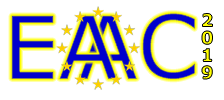Speaker
Description
The use of particle accelerators in radiotherapy has significantly changed therapeutic outcomes for many types of solid tumours. While protons are well known for sparing normal tissues surrounding the tumour and increasing the overall therapeutic index, carbon ions have been suggested to be particularly effective in the treatment of radioresistant hypoxic tumour due to the higher Relative Biological Effectiveness and Linear Energy Transfer. The large and expensive infrastructure currently required for delivering these forms of therapy has stimulated interest in alternative approaches of ion acceleration and delivery. Among these, laser-driven methods demonstrate the potential of delivering therapeutic doses at ultra-high dose rates, with compact irradiation systems. An extensive investigation of the radiobiological effectiveness of laser driven ion pulses is necessary in view of any future clinical application, but also offers the opportunity of accessing yet untested regimes of radiobiology where the dose is delivered to biological samples at dose rates exceeding by many orders of magnitude what normally possible with conventional RF accelerators.
This talk will provide a review of recent results globally obtained in the field, as well as details of experiments carried out by the UK-wide A-SAIL consortium at the Central Laser Facilities of the Rutherford Appleton Laboratory.

